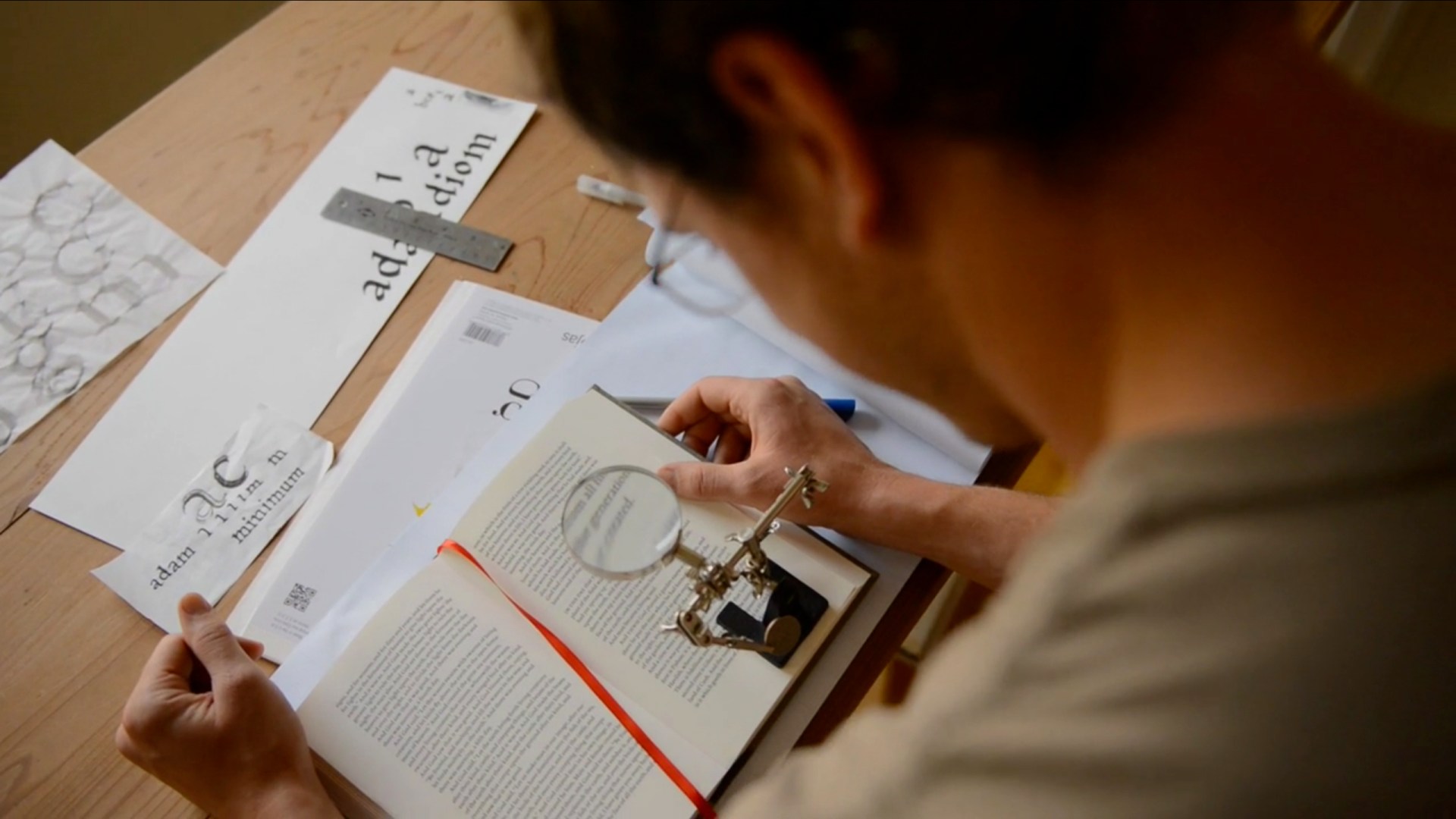About 24 hours after California designer Adam Lewis Greene posted his plan for Bibliotheca—a four-volume minimalist Bible—on crowdfunding site Kickstarter, he met his $37,000 goal. A month later, when the campaign ended, he had $1,440,345.
"I set out hoping 500 people would back the project, which would have been an enormous feat," Greene told CT shortly after the Kickstarter clock ran out. He ended with nearly 15,000. "I didn't anticipate it reaching beyond a very niche audience."
It's still a niche publication—15,000 would be a small run for a traditional publisher, whose marquee Bibles can run into the hundreds of thousands. But it's unequivocally the surprise Bible-publishing hit of the year and one of Kickstarter's biggest successes.
Bibliotheca is no study Bible. Unlike most printed since Gutenberg, Greene's version has one column, wide margins, large typeface (which Greene created from his own handwriting), and no notes or chapter marks. And it uses Greene's personal mash-up of the 1901 American Standard Version and the 1862 Young's Literal Translation, with "thees" and "thous" dropped. In many ways it is an example of the "Franken-Bibles" predicted by Bible technologist Stephen Smith (see "The Bible in the Original Geek," March 2014).
Bibliotheca's Kickstarter launched the same week that Crossway released a similar Reader's Bible of its English Standard Version. Like Bibliotheca, the Reader's Bible has one column and no chapter and verse notations. Biblica, which publishes the New International Version, released a similar project, The Books of the Bible, in 2007 and 2011.
"Reference Bibles traditionally look like dictionaries," says J. Mark Bertrand, author of the Bible Design Blog. "Reader-friendly Bibles are more like novels. We're lamenting that people don't read their Bibles enough, and now we've realized the design of Bibles has an influence on that."
"Reader-friendly" Bibles have been tried before but never caught on, he said. (A notable exception: The Message.)
However, it may be that the age of short-form content, especially social media's nurturing of mental distraction, has sparked interest in a clean, undistracted way to engage the Bible, said Dane Ortlund, a senior vice president for Bible publishing at Crossway.
"Though it's a new wave, it's really getting back to the way people originally wrote and read or heard the Bible," he said. "Verse and chapter numbers are only 500 years old."
"They're reference tools," says Glenn Paauw, Bible publisher for Biblica. "But when they're in the regular Bible, the message is: Use this like a reference book, not like a book to sit and read."
Reading the Reader's Bible as an unbroken narrative feels different, said Bertrand. "I find myself engaging more with the ideas presented rather than looking for a verse number.
"It's surprising to me, even though I've advocated for this kind of thing," he said. "I didn't think it would make this big a difference."
Reading without tripping on chapter numbers or footnotes can help people see the Bible anew. But a reader-friendly version probably shouldn't be the only Bible on your shelf, Ortlund said.
"At times you'll be listening to a sermon and someone will say, 'Turn to chapter and verse,'" he said. "That's going to be a little harder."
Paauw notes the main thing lost in a reader-friendly version: "Money. The double column saves pages and costs." (Bibliotheca is separated into four volumes, between 450 and 650 pages each.)
But few publishers are worried that reader-friendly versions will lose money, Bertrand said.
"While I can't speak for every publisher, the people I talk to are scratching their heads over this. It's awakening them to the reality that people want more readable Bibles."
(An earlier version of this story appeared on our website.)










